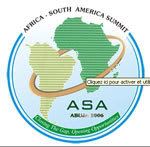The
Bonn UN climate change negotiation has hit a stalemate.
The
rift is over whether mitigation for the period 2012–2020 should be tackled by
the Ad Hoc Working Group on the Durban Platform (AWG-ADP) or the two existing
negotiating tracks.
The
two already existing negotiating tracks are the Ad Hoc Working Group on
Long-term Cooperative Action (AWG-LCA) and the Ad Hoc Working Group on the
Kyoto Protocol (AWG-KP). A series of
sessions, both plenary and informal, over the last few days have failed to
resolve the impasse.
Developed
countries have failed to meet their legally binding international obligations
under the existing climate change regime and are therefore pushing to have
mitigation negotiated under the ADP even though the Durban mandate/COP 17
extended the mandate of the AWG-LCA to enable it to continue its work which
includes mitigation, adaptation, finance, technology and capacity building in
accordance with the Bali Action Plan (BAP), Decision 1/CP/13.
Three
main outcomes emerged from the December the 2011 climate conference in Durban,
South Africa. The ‘Durban mandate’
launched a process for the negotiation of a new climate treaty to be
implemented from 2020. The mandate also agreed on measures to implement some
decisions adopted by earlier COPs.
Developed
countries are required under the existing global climate regime (convention and
protocol) to cut their emissions and for non-Kyoto protocol members, such as
the United States, to undertake comparable, measurable and verifiable emission cuts.
Developing
countries are also, under the Bali Action Plan, tasked to carry out Nationally
Appropriate Mitigation Actions (NAMA) with financial and technological support
from developed countries.
If
developed countries are successful in their pursuit, it will abruptly and
effectively terminate the AWG-LCA process, outcomes and the principles of
equity and Common But Differentiated Responsibilities (CBDR) which distinguish
the actions and responsibilities of both developed and developing countries.
These principles have been at the heart of climate negotiations up until now.
Developed countries’ at Bonn will also render the work of the AWG-KP
meaningless.
As a
tactic, developed (Annex I) countries have categorized the stalemate as a fight
over procedural issues, which imply that developing countries are wasting
precious limited negotiating time.
However,
as noted earlier, the fight is actually about the substance, context and
paradigm of the climate regime pre-2020 and indeed the post-2020 when the
Durban mandate requires a new legal global climate change regime to come into
force.
Rich
countries led by the United States and the European Union are most content with
the ADP as it does not have comparability, firewall or support for NAMAs of
developing countries unlike the AWG-KP and AWG-LCA.
 |
| Chinese delegate: Su Wei |
The
danger with developed countries’ plan to move 2012-2020 ‘enhancing mitigation
ambition’ to the AWG-ADP is that it will reprieve these countries from legally
binding commitments to install lower non-binding targets. It will also impose an inequitable burden on
developing countries in meeting mitigation ambition.
Such
an outcome will invariably send global temperatures above safe limits and out
of control.






